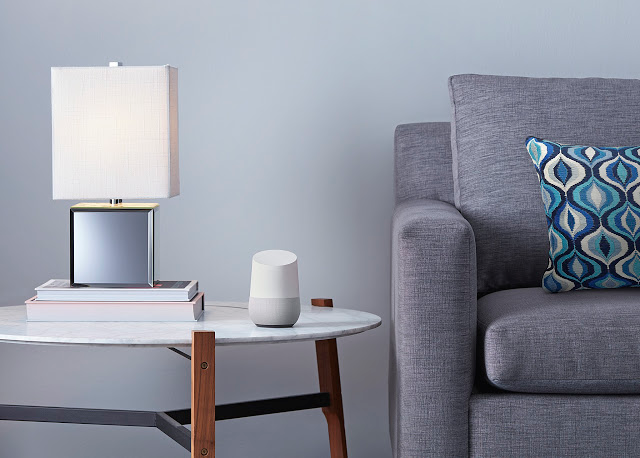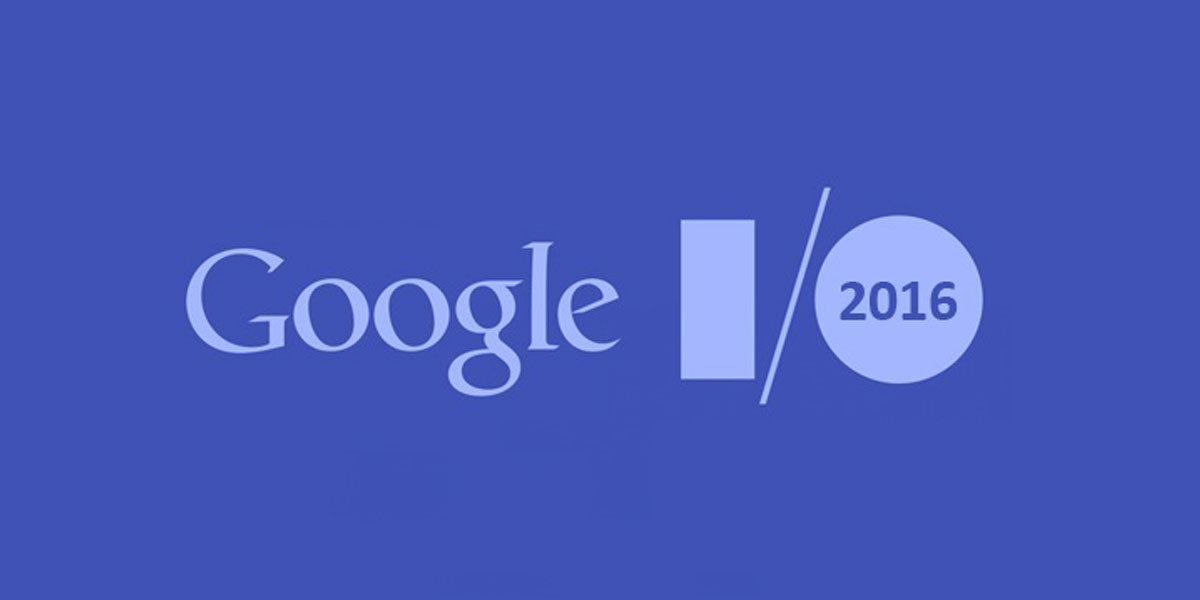Your guide to tech-driven changes in the media landscape by IPG Media Lab. A fast read for you and a forward for your clients and team.
The Highlights
- Google Instant Apps allows brands to enable immediate access to their apps with the native experience consumers expect, including frictionless payments
- Google Assistant is a personification of Google search for both voice and text with hints at brand partnerships
- Daydream is a new virtual reality platform, building on Cardboard with headsets customized to future high-end Android phones and giving brands an important new platform to engage consumers with immersive content
- Firebase 2.0 is a new toolset for brands to create apps across Android, iOS, and the web on a budget with integrated analytics to understand customer interactions
What Google Announced
Google’s annual developer conference started on Wednesday, and the company announced a series of products including a voice-controlled, smart home speaker; a rebranded and updated virtual assistant; a new Android Wearable OS; two new communications apps; and a new virtual reality platform. Wired has a great summary of all the announcements, but here’s what marketers need to know:
- Google unveiled Android Instant Apps to enable fast, temporary access to Android apps with just one click. Similar to App Streaming, which was released last year, Instant Apps allows users to access native Android apps without installing them. Unlike App Streaming, Instant Apps requires that app development is modular, with parts that are quickly downloaded as needed. Importantly, Android Pay works with Instant Apps so that consumers can pay for products and services in two taps instead of filling in their payment and shipping information.
- Google consolidated OK Google and Google Now voice search to the rebranded and expanded Google Assistant, a conversational virtual assistant that can process natural language and offer contextual answers and follow-up questions. Google Assistant will be available on all platforms eventually, but for now it will be the service powering the voice on Google Home, a connected speaker similar to the Amazon Echo, and via text in Allo, Google’s new smart messaging service. It will start with a limited number of partners including Uber and OpenTable.
- Google also announced a new VR platform called Daydream, which will be a native part of the upcoming Android N. Google said it is working with major Android OEMs including Samsung, HTC, LG, Xiaomi, and Huawei to make Daydream-compatible smartphones with 4K screens. Daydream is effectively a much-more-advanced Cardboard platform, allowing Android handset manufacturers to create comfortable headsets that compete with Samsung’s Gear VR (a partnership with Facebook’s Oculus). Daydream compatible phones and headsets will then have access to shared VR content and a remote control-like input device designed by Google.
- Among the developer tools that Google announced today, Firebase 2.0 stands out as a great tool for brands to create and test their apps. It allows simultaneous development for Android and iOS and includes advanced analytics, secure storage, and targeted notifications. Its main competitor is Microsoft’s Xamarin, another cross-platform mobile development toolset.
What Brands Need To Do
Google Instant Apps gives users the power of native apps with instant loading and without the usual commitment of download time and storage space. The feature works with 95% of Android phones — back to Jelly Bean — and can help brands by overcoming the initial app installation hurdle and dramatically reducing payment friction; however, users might not fully install an app and keep the app icon on their home screen as a reminder to come back later. Also, links from messaging, social media, or elsewhere could lead to a native app experience on Android, instead of just a website. Because Google Instant Apps works with Android Pay, it supports frictionless payments and checkouts that will help retailers boost conversions. Brands could use Instant Apps in many ways. An auto brand could use this feature to drive potential buyers to a build-your-own feature that works better natively than as a website, and an entertainment brand could leverage this feature to reach more users with their in-app content. Therefore, brands need to work with developers to break their branded apps into appropriate modules to enable this feature. Look for ways to convert Instant Apps users into habitual app users.
With Google Assistant and Google Home, Google is trying to catch up to the success of Amazon’s Alexa and Echo by leveraging Android, their industry-leading machine learning expertise, and strong developer ecosystem. While we are skeptical that Google’s new messaging app Allo will ever have a meaningful audience for marketers, it might be a great way to test integrations with Google Assistant before it rolls out to other platforms (if Google opens the API soon as expected). For brands, this is another push toward a meaningful presence on conversational media channels and to optimize their content and partnerships. There are new rules of SEO in conversation that are much closer to winner-take-all, because unlike Google Search there’s no second page of results and there’s often only one recommendation per request. Not every brand is a good fit for this ecosystem but there are lots of opportunities. For example, travel brand may integrate their service with Google Assistant to enable personalized recommendations, booking reservations, or checking itineraries. On messaging services like Allo, those services could extend to integrations with all participants’ calendars.

Daydream, the new VR platform built into Android N, will offer brands a new channel for immersive content that approaches the reach of all Android users like Cardboard but with more power and headsets comfortable enough to use for more than a few minutes. As the audience for VR content continues to grow, brands can follow the good examples set by early adopters like Marriott Hotels and JCPenney and start developing branded VR content. Google also mentioned it is partnering with a number of media companies including The Wall Street Journal, CNN, and USA Today to create VR apps for Daydream, and users will also be able to watch content from YouTube, Netflix, Hulu, HBO, and Major League Baseball. So brands can also team up with one of those media partners to create or sponsor VR content.
Firebase 2.0 is a great toolset for brands developing their own apps. Production cost is kept low by developing once and then Firebase does the work of making the app work on Android, iOS, and even the web. Other features particularly appealing for brands include an integrated social referral system to easily convert your most loyal users into advocates, automatic App Indexing so that in-app content is shown in Google Search, customizable and segmentable push notifications, and powerful analytics that even syncs with AdWords campaigns to aid in customer acquisition and lifetime value analysis. All of these features are free with paid add-ons for hosting and database storage.
Market Impact
Google’s announcements this year are mostly about playing catch-up with its competitors. While the new products and features enrich the Android ecosystem, they will not necessarily pull users away from iOS. Google Home, however, will put pressure on Amazon, particularly with Home’s ability to push content to TV screens. Whether or not consumers will be more willing to trust Google or Amazon to keep an open ear inside their homes remains to be seen. Google Assistant gives Facebook’s M a significant threat and the competition should make both better, faster. We don’t expect Android Wear to catch on based on the 2.0 updates but Firebase 2.0 is a real threat to Microsoft’s Xamarin with a full suite of tools and an active community.
How We Can Help
The Lab has extensive experience in developing text-based Messenger bots, voice-based apps as Alexa skills, and VR content. We can help our clients assess market trends and figure out how to apply emerging media technologies in marketing strategy. Please contact Client Services Director Samantha Holland ([email protected]) if you would like more detail or to schedule a visit to the Lab to discuss how Google-powered and other solutions can help you better reach and serve your customers.
For previous editions of Fast Forward, please visit ipglab.com. Please send any constructive criticism or feedback. We want these to be as useful as possible for you and your clients, and your input will help us immensely.
Pictures featured here are promotional images courtesy of Google.

